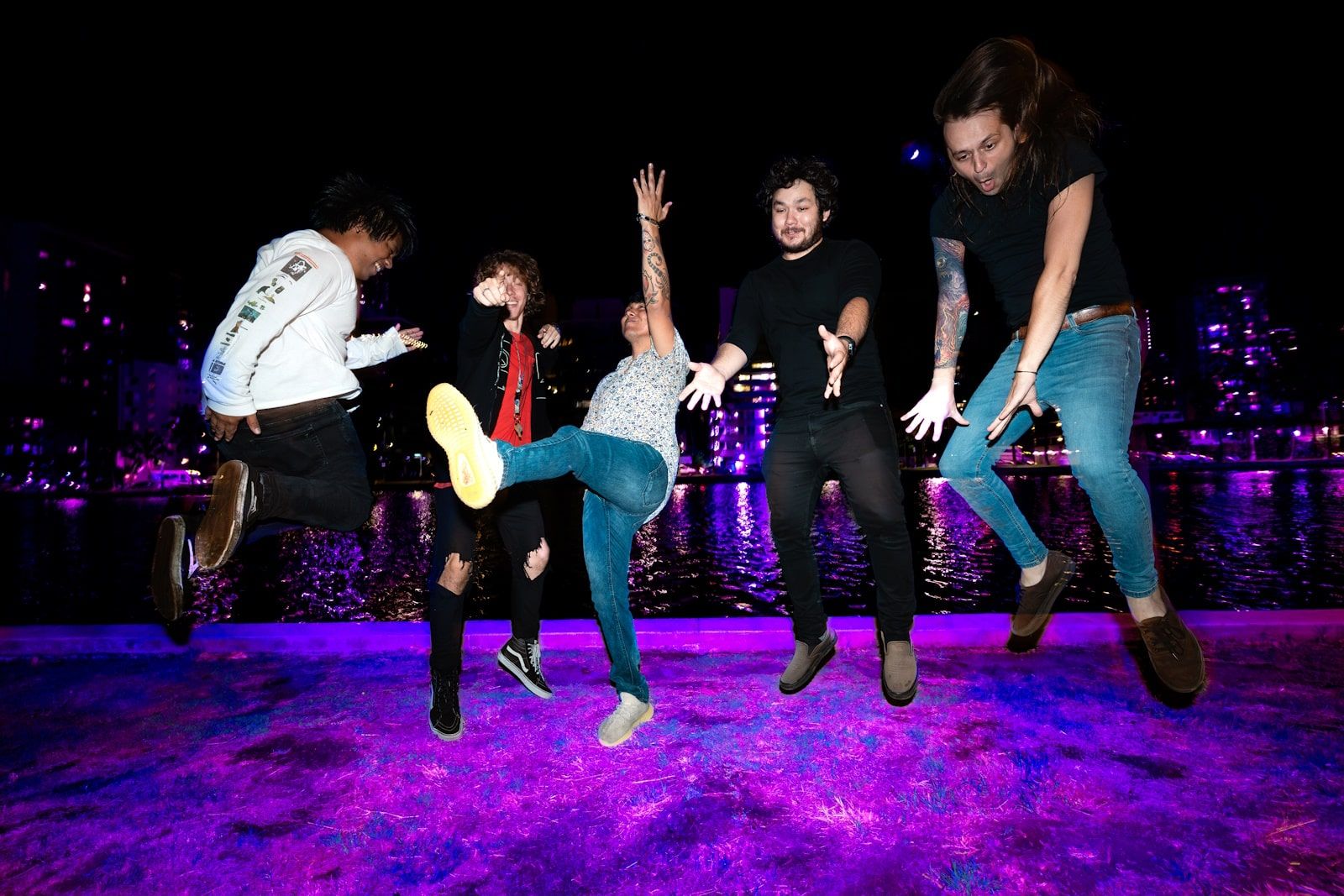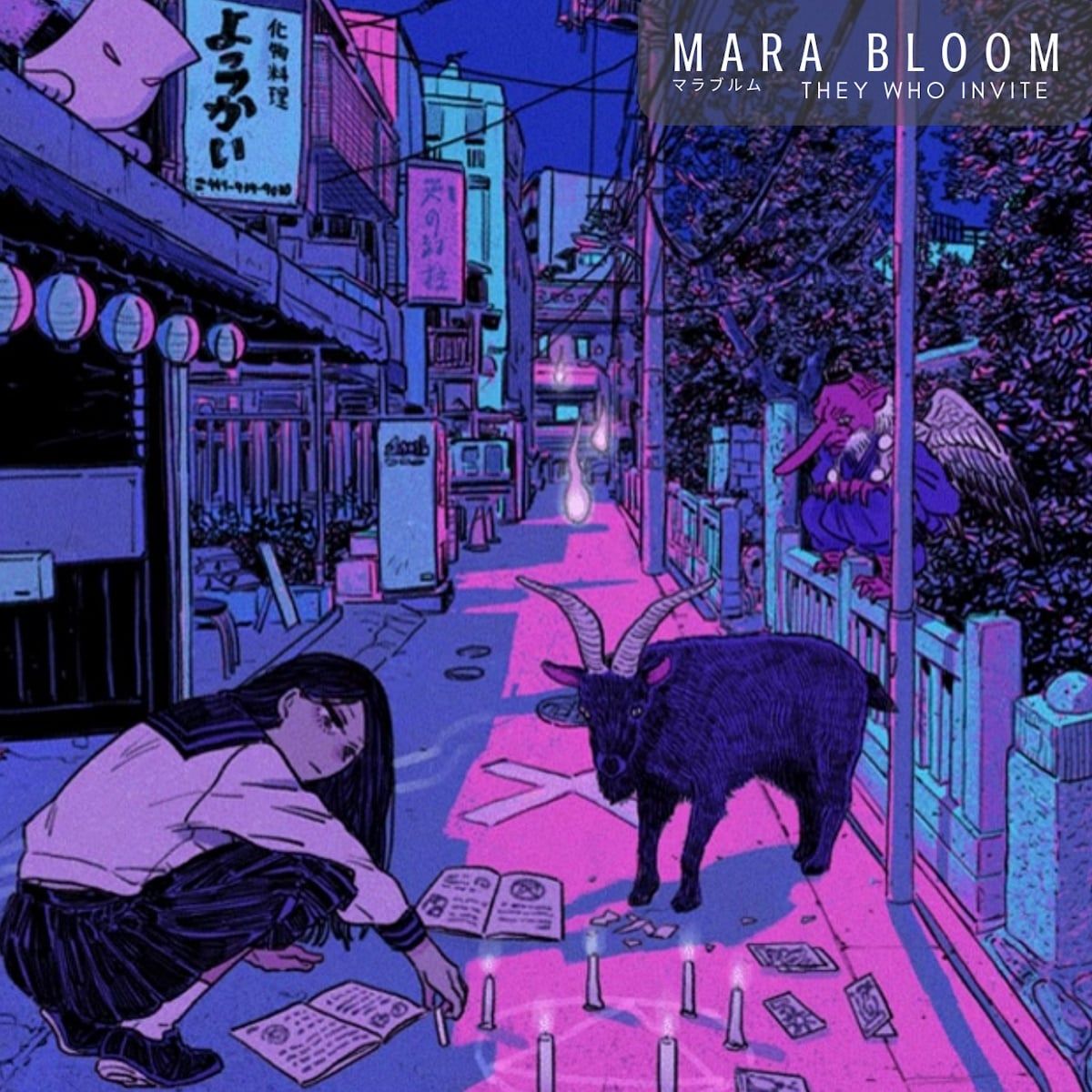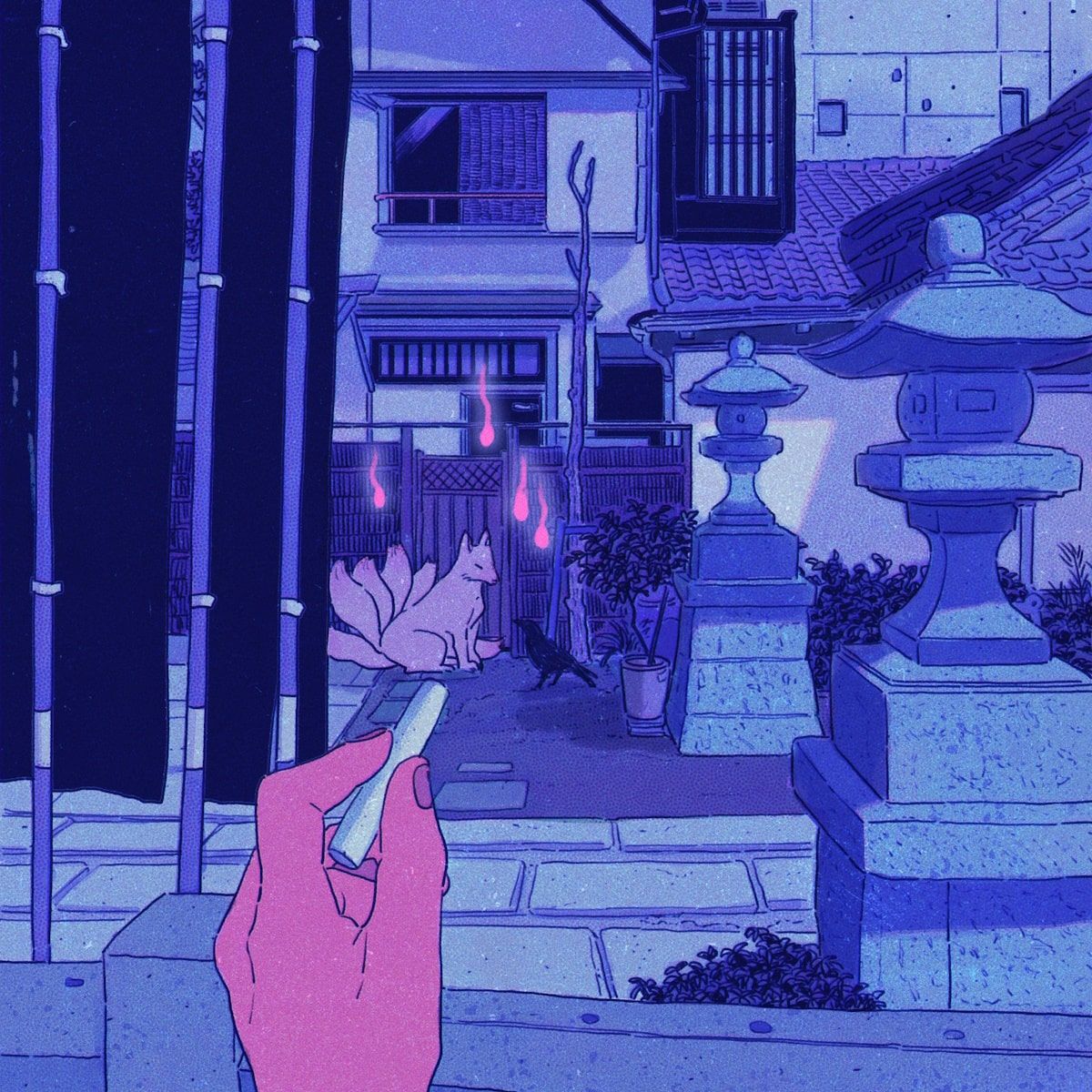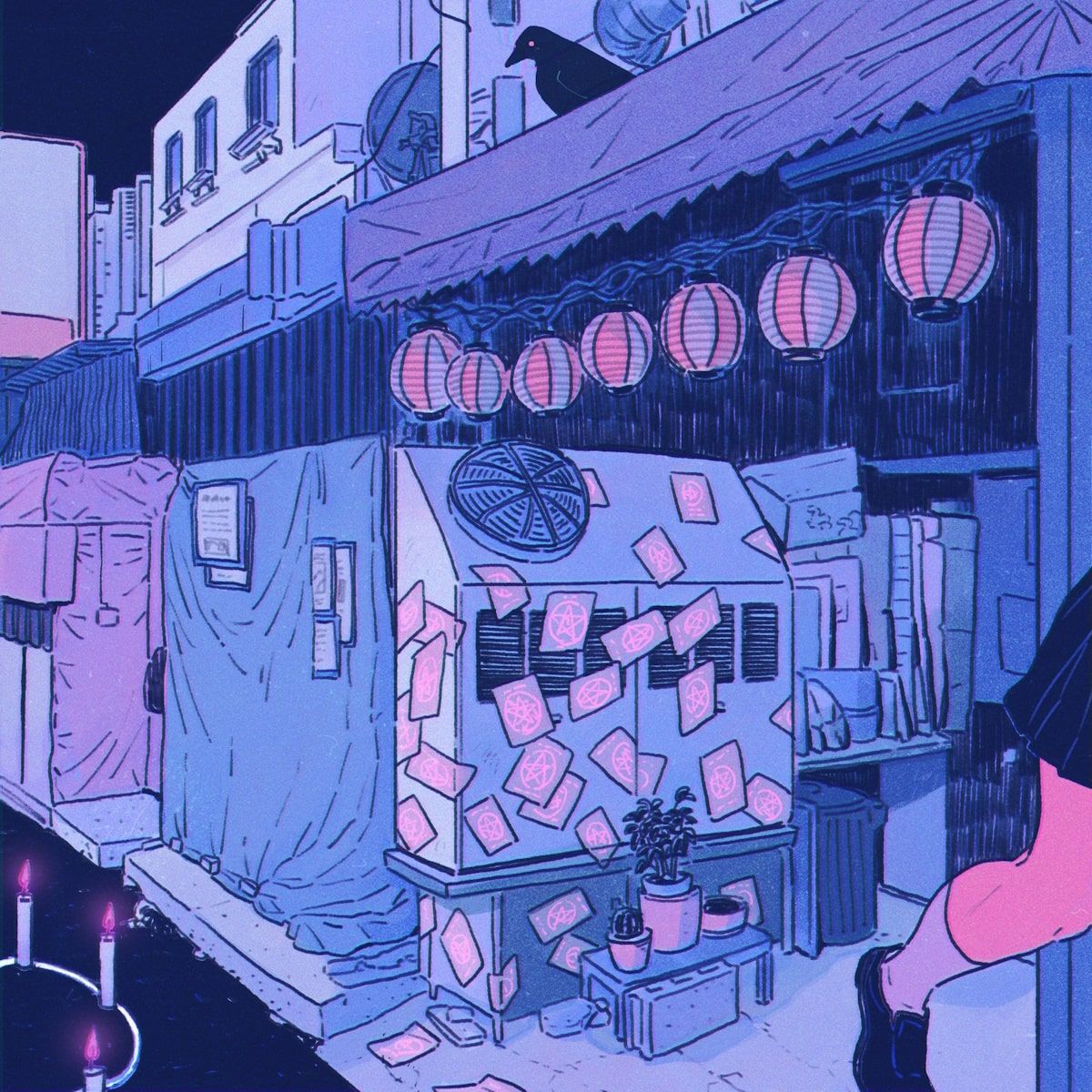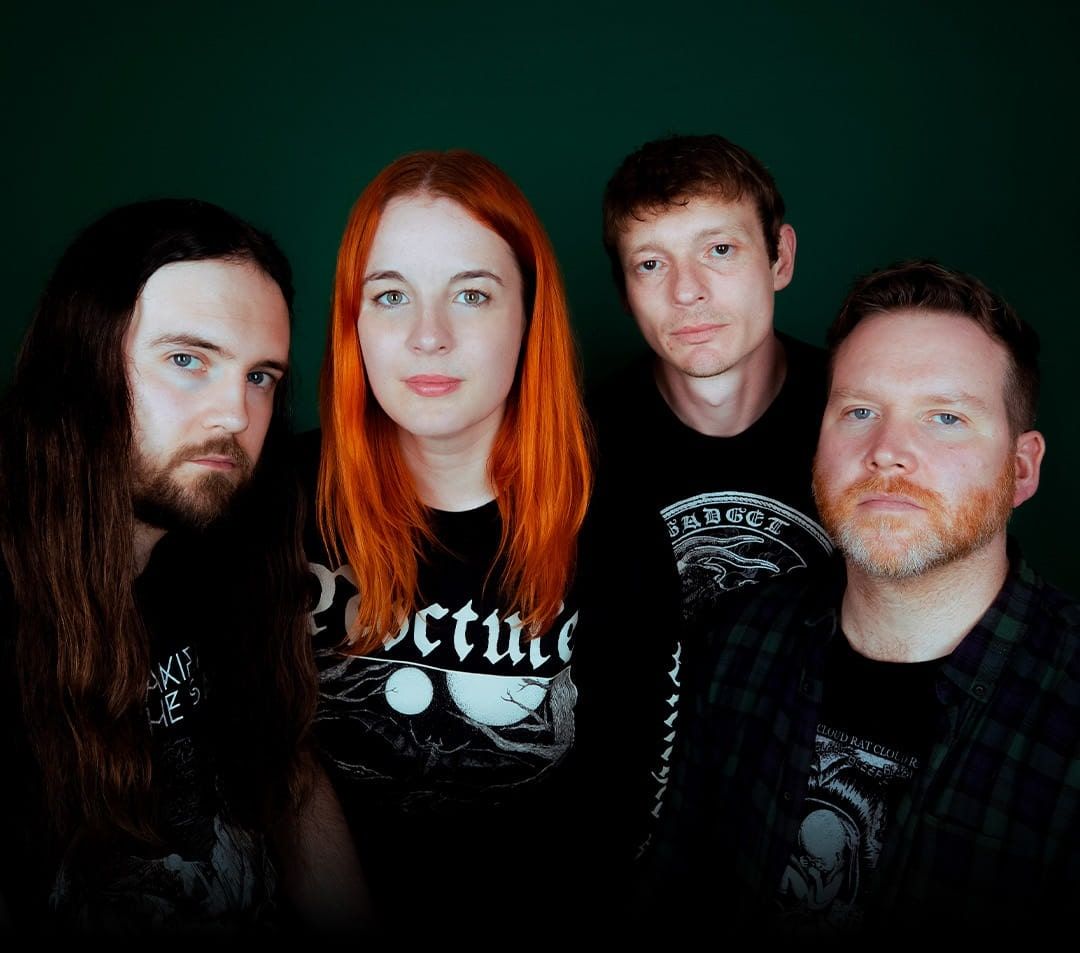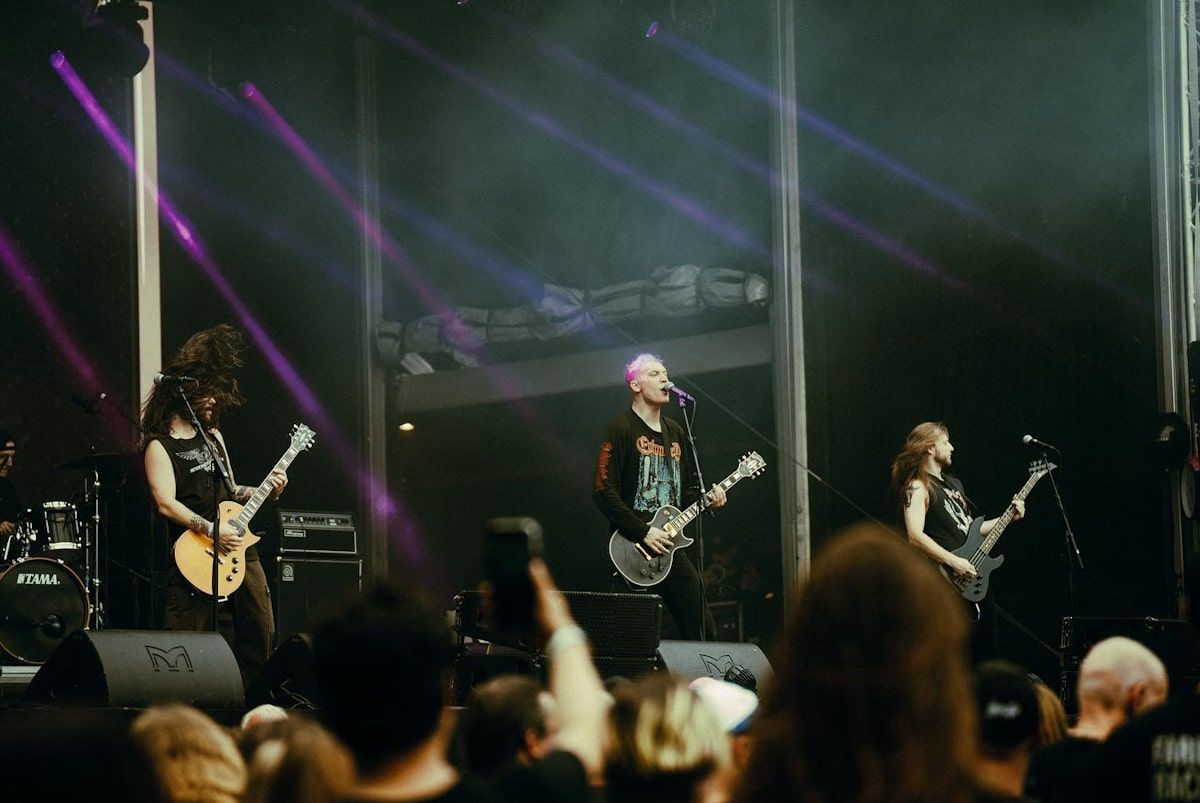Hawaii, the picturesque land of beaches and sunshine, may not be the first place you think of when it comes to screamo, emotive post hardcore music. Yet, beneath the serene exterior of this island paradise lies an underbelly pulsating with raw, intense energy. Enter Mara Bloom, the embodiment of this contradiction. Emerging from Honolulu’s depths, Mara Bloom emerged from Oahu’s heartbeat—a musical tapestry woven together from diverse strands of island culture and sound.
Mara Bloom’s initial offering, the 2021 EP Hallucinations, showcased the band’s ability to juxtapose rhythmically intricate funk grooves against searing hardcore melodies—a tantalizing dance between light and shadow.
Their newest work, They Who Invite, mirrors this, but with a more mature and refined soundscape. Drawing inspiration from Shinto mythology, the album artfully intertwines the threads of ancient tales with contemporary narratives. The result? A modern-day love story suffused with mysticism, danger, and high drama.
The album is not only a reflection of the band’s evolution in terms of musicality but also showcases their rich, layered influences. From the nostalgia-tinged chords reminiscent of Japanese city pop to emo vibes in the vein of Alesana, to the aggressive undertones of progressive metal, it’s evident that this band draws from a broad palette. In a world where genres can sometimes feel limiting, Mara Bloom dares to color outside the lines.
Mara Bloom‘s candid take on the local scene speaks volumes about the challenges and rewards of being a hardcore band in a region dominated by punk, indie, and reggae sounds. Yet, the isolation, the distinct cultural amalgamation, and the hunger for something different have birthed a sound that’s truly theirs. The scarcity of mainland bands visiting their shores has, perhaps inadvertently, given local bands the space to grow without being overshadowed.
And while Mara Bloom might be among the few names that stand out in the post-hardcore category in Hawaii, they are by no means alone. Bands like Nesta, Convoluted Planes, and the Ala Wai Virus hint at the potential that lies untapped within Hawaii’s shores. The scene might be sparse, but it pulses with dedication and raw passion.
Our exchange with the band provided deep insights into their journey, influences, and aspirations. From the strong Japanese influence shaping their unique sound to their “anger issues” that find an outlet in metal—it’s evident that the spirit of Hawaii is deeply interwoven into their identity.
When asked about the significance of the term “progressive” in the context of post-hardcore, the band’s perspective was clear—it’s about expanding horizons and breaking free from restrictive labels. The band believes in the power of innovation, in bringing together diverse sounds to craft something unique and resonant. And indeed, as the notes from They Who Invite reach out to listeners, they invite them into a world that blurs boundaries—a world where the serene and the savage coexist in harmonious discord.
Check out our full conversation below.
How has the spirit of the island—its unique culture, history, and geography—influenced your band and the sonic journey from “Hallucinations” to “They Who Invite”?
Hawaii is weird. Its an isolated part of America and the culture is vastly different. Lots of diversity. With diversity comes specific cultures in a relatively confined area. The Japanese influence is really strong and we use a lot of chords that are found in Japanese city pop/rock. It sounds nostalgic somehow. If we grew up somewhere else it would be different. Also, we have anger issues and metal helps with that.
Can you talk about the local heavy scene in Honolulu?
God. It’s not ideal for our genre. A lot of punk and indie bands… as far as post-hardcore goes, we’re probably the only one, besides maybe Convoluted Planes. The bigger acts here are all reggae. A lot of it is who you know and who you can suck up to when you’re trying to get shows. We don’t get big bands over here very often, and with that comes maybe a little big of stagnation. When these big bands come here it’s a big event and a big part of cultivating influence because we don’t get a lot of attention from mainland bands.
Are there some newer hardcore and metal bands from your area we should check out?
Nesta, Convoluted Planes… the Ala Wai Virus is a good example of death metal on the island, Blood Money, Closer Still.
Again, not a lot of metal-oriented bands here, but these are the cream of the crop.
Your music blends a diverse set of influences—from Japanese city pop to progressive metal. What’s the thread that stitches these disparate elements together for you?
Post-hardcore, because we can move from heavy to soft or anything in between. It’s versatile. You can stitch together whatever sections or sounds you want because it’s all over the map. You can be soft, you can be extreme and branch out into elements of djent, progressive metal. It has super rhythmic funk elements just like djent and Japanese city pop.
There’s both screaming and singing, you can fit a lot of other genres in a post-hardcore song. It’s the perfect blank canvas. The thing about post hardcore today is that everyone is very limited to one of a few sounds these days; a prominent one being the DGD-esque sound. Everyone has these pretty chords but they don’t use them in the context that Japanese city pop does, or Japanese music in general. And it’s a perfect blend that we don’t see a lot of people utilize. These chords we use are super unique sounding and no one uses them.
The concept of “They Who Invite” seems to draw inspiration from Shinto mythology. Can you expand on how you wove this ancient narrative into a modern love story with “terrible and occult consequences”?
We wanted to do a concept album. We read a lot of different materials to find the right inspiration for the concept, and the most consistently interesting mythology was Japanese Shinto mythology and esoteric occult topics, and once we started getting into it, we knew we wanted to do something with it. We’re a bunch of weebs, too, so it kind of fit right in.
We found one particular myth that really resonated with us and borrowed some elements from other Shinto myths as well, and the kind of themes of love, hate, betrayal, blind faith, and the occult elements came from Stephen and Feid’s love of horror movies and aesthetics.
We wanted to explore this in a modern setting, though, so we could have more creative freedom with the plot and come up with something that was unique and very much our own story to tell.
What led you to explore non-traditional song structures and lyrical storytelling in “They Who Invite”? Was there a particular moment or influence that sparked this creative direction?
A lot of the bands we listen to are progressive, even when we were young, and the unconventional song structures inspired us. I think we listen to so much progressive music that it kind of bleeds into our subconscious when we’re writing. Telling a story can be so much more of an impactful journey through the music, too, rather than just going back and forth between verses and choruses.
We wanted to tell a story but weren’t quite sure which one, but a couple of stories we found in Shinto mythology really resonated with us, particularly the creation myth for death itself within the mythos, and it pretty much immediately inspired us to do something kind of parallel to those themes. Not that it’s… that deep, though (laughs).
We kind of just do whatever sounds good and try to put it together. Whatever we’re feeling at the time. Music theory explains the music that’s already written, not what should be written but hasn’t been.
View this post on Instagram
Your first EP, “Hallucinations,” had elements of funk. How has the band’s relationship with rhythm evolved as you ventured into making a full-length album?
Well, we wrote this one a little differently, and we had a wider selection of writers for the songs. We wanted to focus on the progressive metal and djent elements rather than the funk-centric sound, which tends to be really rhythmic in a different way.
Thinking about the progressive post-hardcore scene, what elements do you think are essential for the evolution of the genre? How do you envision the future of this style?
I think it was a natural evolution for post hardcore, to be honest. If you look at the genre as a whole and how it’s evolved and progressed over the years, it just seemed like that’s where the evolution was heading and it’s surprising that no one’s done it yet. Post-hardcore can go in any direction, but it hasn’t moved a whole lot in meaningful ways because everyone kind of just wants to limit themselves to being DGD.
The term “progressive” is often thrown around in the music scene though. What does being a “progressive” band mean to you, specifically in the context of post-hardcore?
Moving it to new sounds that hasn’t been explored in post-hardcore, and not limiting ourselves to any specific genre. Post-hardcore is a canvas and incorporating progressive elements is reaching outside its bounds to bring in new influences. Genres are a limiting method to put yourself in. We want to innovate and surprise both ourselves and people who are into it.
Can you describe any particular challenges or eureka moments that arose during the songwriting and recording process of this album?
Oh damn, good question. There were plenty. Finding and developing the story and concept was a huge step forward and helped us shape the album substantially. We rewrote the chorus for Yomi a bunch and once we found the right one it was extremely obvious, and everything kind of clicked from there. We were trying really hard to kind of go outside the boundaries of what defines post-hardcore conventionally.
Also, tracking drums sucked. Our old drummer was unprepared, the space was not ideal, it was super expensive, we did 9 hour sessions… it was just a disaster from the top down. We did it all acoustically and then it sounded terribly so we had to do it all over again digitally.
Full Circle, though, I think was a turning point, too. Tyler was upset one day and started writing and just kind of let go and that song is what came of it. The djent elements worked really well, surprisingly, and we were pleasantly surprised, but it was tough to put together, we were having a hard time with some of the Tricot and Hail the Sun-esque leads.
We have a pretty intense prog section towards the end of the song that was originally a part of a different song entirely and it really changed the song in a cool, unexpected way. That song kind of set the tone for the rest of them and it’s a good example of one with a lot of eureka moments.
With themes of love and melancholy co-existing with heavier sonic elements, what emotional journey do you hope listeners will experience when they delve into “They Who Invite”?
Our vision with this album was a very cinematic auditory experience, kind of similar to Periphery’s incredible album Juggernaut. We want listeners to feel how we felt when we were writing when they listen to it, the flow-state we were in when we were writing it. It goes everywhere from melancholy metal to bouncy levity, from prog-tinged horror to a sassy bedroom scene.
The adrenaline and the anger of the faster parts and the sensuality of the more elegant parts are really evocative.
If “They Who Invite” were to be the soundtrack for a film or a specific life moment, what would that be and why?
Any anime by Studio Trigger. Final Fantasy, SMT. Nier. FLCL. Lots of dark but very colorful themes, lots of upbeat moments.
We work as a band because we have a lot of tastes and interests in common, like anime and JRPGs. Our songs are like kind of like JRPGs. The stories in those games are always so wack and out there, but there’s depth to the characters that give weight to the more absurd elements to make it very interesting even though what’s going on might be kind of batshit crazy. We want our music to evoke the same feeling.
What’s next for Mara Bloom after the release of “They Who Invite”? Do you have any upcoming collaborations or tours that your fans should look out for?
We have a couple collaborations we’re working on right now! We’re also in the early stages of planning the next album.
We’re figuring out logistics for mainland tours right now, but it’s kind of tough being all the way out here. If you want us on tour with your band, hit us up! We will literally go on tour with you.



